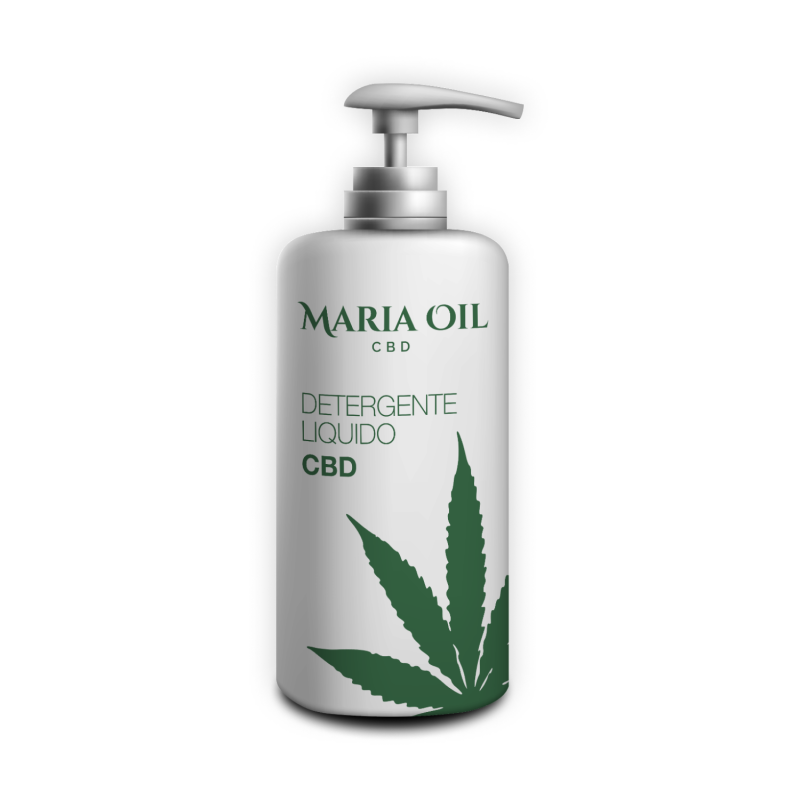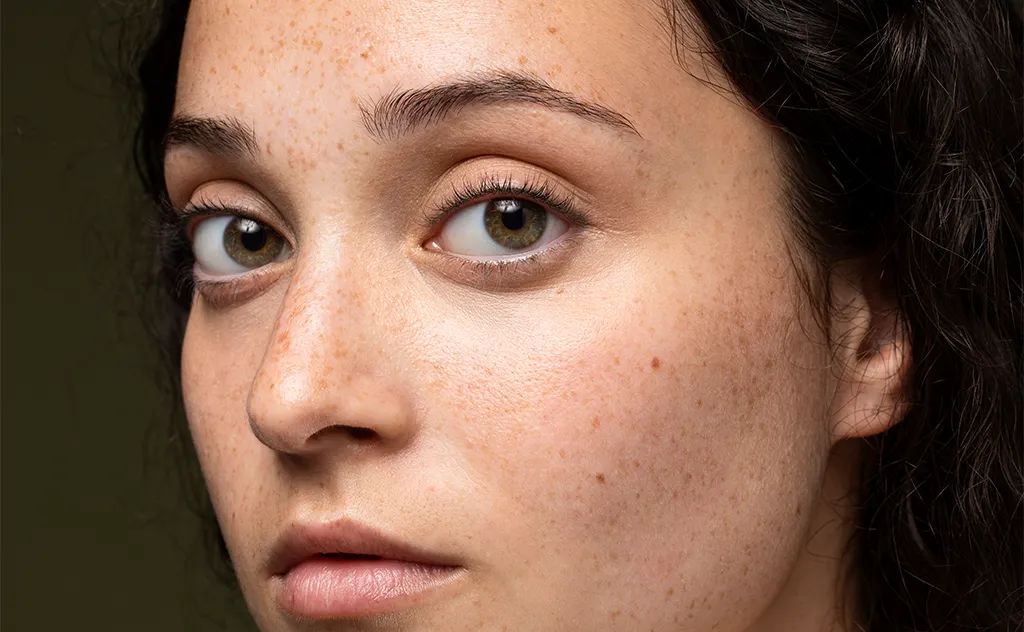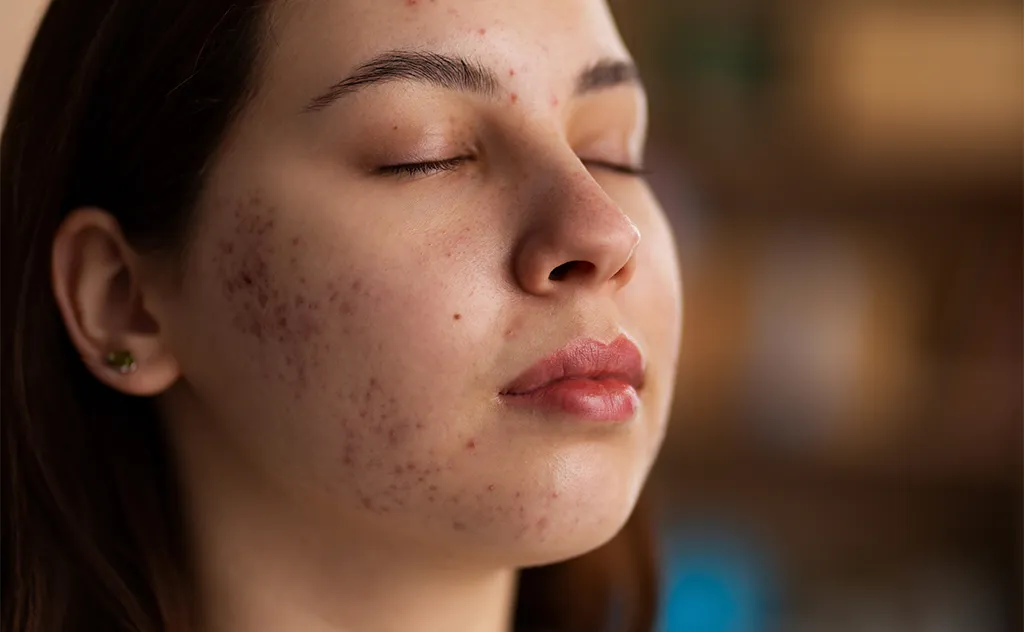Acne-prone skin, often an object of frustration and concern, is a common challenge for 40 million people. Many more than we think, at different ages.
Imperfections, redness and annoying pimples can become a source of discomfort and dissatisfaction, which is why understanding their roots is the first step towards effective treatment.
Acne is not just a cosmetic issue.
It is a complex dermatological condition that can be influenced by multiple factors including hormones, genetics and skin care routines. Contrary to popular belief, it is not a condition related solely to developmental age and hormonal imbalance. Rather, it is something that many people can run into for different reasons.
Are you also struggling with this disorder? In this article, we will explore the challenges of acne skin together and provide an in-depth guide on how to understand it in order to deal with it in the right way.
From choosing products to creating a customised daily routine, we will look at best practices for managing and treating acne effectively.
The key to youthful, healthy skin lies in knowledge of the problem and awareness of possible remedies for treating acne skin.
-
Product on sale
 CBD Face and Neck CleanserOriginal price was: £24.00.£9.60Current price is: £9.60.
CBD Face and Neck CleanserOriginal price was: £24.00.£9.60Current price is: £9.60.
What is acne skin?
Acne-prone skin is a skin condition characterised by the presence of pimples, blackheads, pustules and sometimes cysts. This condition results from a combination of factors, including overactivity of the sebaceous glands, accumulation of dead skin cells and bacterial overgrowth, often linked to the Propionibacterium acnes bacteria.
The sebaceous glands produce sebum, an oil that keeps the skin moisturised. This is a positive natural mechanism for the skin when everything works properly and the body only produces the necessary amount of sebum.
However, in the case of acne-prone skin, the sebaceous glands can become overactive, producing excess sebum that can mix with dead skin cells and clog pores. This environment encourages the growth of bacteria, leading to inflammation and the formation of pimples.
As we will see in a moment, acne-prone skin can result from a very wide range of factors and can manifest itself with varying intensity.
Why does acne occur?
Acne is a complex, multifactorial skin condition that can affect different ages for different reasons.
Here are some of the main causes:
- Hormones: acne is more common during puberty, when the levels of androgenic hormones (such as testosterone) are high, these hormones stimulate the sebaceous glands to produce more sebum, which can clog hair follicles and encourage the proliferation of bacteria;
- Genetic Factors: acne has a strong genetic component, in fact if a parent has had acne, their children have a higher risk of developing the disease;
- Environmental Factors: some environmental factors, such as exposure to irritants or the use of certain drugs, can make the situation worse.
It is very important to recognise the cause of skin with acne to understand the severity, to know whether it is a temporary or long-lasting phenomenon, and to find the best treatment accordingly.
Types of acne
As we said, acne-prone skin comes in different forms and types, each with specific characteristics.
Here are some of the main types of acne:
- Open comedones (blackheads): small deposits of sebum and dead skin cells that accumulate in the pores, oxidising on contact with the air;
- Closed Comedones (whiteheads): similar to blackheads, but sebum and dead skin cells remain under the surface of the skin, creating small white swellings;
- Papules: small red, inflamed pimples without a head, which may be sensitive to the touch;
- Pustules: pimples with a white or yellow central part, caused by the accumulation of pus; they are often more prominent and can be painful;
- Nodes: deeper, hard and painful subcutaneous lumps that can lead to scarring;
- Cysts: larger, often painful and pus-filled inflamed nodes that require special medical attention.
How to tell if acne is hormonal? There are a few factors from which you can find out:
- Age: it is more common in women of childbearing age, between 20 and 40;
- Location of lesions: often occurs on the face, chin, chest and back;
- Menstrual cycle: may worsen before or during the menstrual cycle;
- Other hormonal symptoms: may be accompanied by other symptoms, such as menstrual irregularities, weight gain or hair loss.
If you think you are suffering from hormonal acne, you should see a dermatologist for a diagnosis and treatment appropriate to its severity.

What makes acne worse?
In addition to the main causes of acne skin, which we have already listed, there can be both internal and external factors that contribute to aggravating the situation.
Among the internal causes we have:
- Hormonal imbalances: even sudden changes in hormone levels, such as those during puberty, menstruation, pregnancy and menopause, can affect sebum production and lead to acne;
- Stress: stressful situations can trigger or worsen acne as stress can influence hormones and increase sebum production;
- Diet: foods with a high glycaemic index and dairy products have been associated with an increased risk of acne in some people.
External causes include:
- Unsuitable skin care products: the use of harsh or comedogenic products can irritate the skin and contribute to the formation or worsening of acne;
- Polluted environment: exposure to air pollutants and irritants can damage the skin and increase its susceptibility;
- Crushing: squeezing or squeezing pimples can worsen acne, cause inflammation and leave scars;
- Overuse of cosmetics: excessive use of make-up or products, especially synthetic ones, for skin care can clog pores; it is important to remove make-up before going to bed;
- Climate and humidity: prolonged exposure to heat, humidity or extreme weather conditions.
A good starting point for treating acne would therefore be to review one’s habits and tendencies, to see what can be corrected. This is part of a wide-ranging treatment that may also include the combined use of products for acne-prone skin.
Up to what age can you have acne-prone skin?
We finally get to talk about one of the most talked about points relating to acne, namely when it occurs. Although we are more used to seeing acne in teenagers, it can actually appear at any age.
Most cases of acne start during puberty, when there are significant hormonal changes in the body. However, it is not uncommon for acne to develop even before or after adolescence. Here are some stages of life when acne can occur:
- Infancy: although rare, there may also be cases in infants or young children due to maternal hormones in their system;
- Adolescence: this is the most common stage for the onset of acne, when significant changes occur in the endocrine system;
- Young adulthood: some people may continue to experience acne into their early twenties;
- Adulthood: finally, acne can persist into adulthood, affecting people even beyond their thirties; this phenomenon is known as “late acne” or “adult acne” and can affect both those who have already had acne during adolescence and those who have never had it before.
The causes of late-onset acne are precisely those aggravating factors we have just listed such as a prolonged condition of stress, an unhealthy diet, a particular hormonal change such as pregnancy or menopause, improper use of cosmetics or the use of low-quality hygiene products or exposure to irritants.
Obviously, the older one gets, the more difficult it is for acne to appear because the skin dries out and other problems arise.
How to combat acne-prone skin
At this point you may be wondering: if I have acne-prone skin, how should I treat it?
The key to dealing with acne skin is to adopt a balanced approach involving thorough cleansing, a proper skin care routine and, in some cases, the advice of medical professionals.
At this point, we will explore the basic steps to combat acne skin, focusing on practices ranging from daily cleansing to the choice of specific products, to find out what you can do now to take care of your skin.
Skincare against acne
A skincare routine for acne-prone skin must take into account the particular needs of this condition. Therefore, it is not enough to buy natural, quality products (although this is of paramount importance), but you must also choose the right products and practices.
Here are some key steps that can help you improve the health of your skin:
- Gentle cleansing: use a gentle cleanser in the morning and evening to remove excess sebum, dead cells and impurities without irritating the skin;
- Regular exfoliation: the use of an exfoliant containing acids such as salicylic acid can keep pores free of blockages;
- Hydration: acne-prone skin also needs hydration, so choose a non-comedogenic moisturiser to keep the skin balanced without contributing to clogged pores;
- Products with specific ingredients: look for products containing ingredients known to fight acne such as salicylic acid, benzoyl peroxide, retinol or glycolic acid, or even better natural products such as CBD or aloe vera;
- Avoid comedogenic products: these are products that contain heavy oils or ingredients that could clog pores and make acne worse;
- Sun protection: use a broad-spectrum sunscreen to protect your skin from the damaging effects of UV rays;
- Handle with care and gentleness: avoid touching, squeezing or rubbing pimples.
The effectiveness of a skincare routine against acne can vary from person to person, so it is important to adapt your routine according to the specific needs of your skin. If necessary, seek advice from a dermatologist.
-
Product on sale
 CBD Face and Neck CleanserOriginal price was: £24.00.£9.60Current price is: £9.60.
CBD Face and Neck CleanserOriginal price was: £24.00.£9.60Current price is: £9.60.
Taking care of nutrition
Nutrition plays a significant role in the health of your body and, in particular, your skin.
Although the relationship between diet and acne is something very personal, some dietary guidelines can help most people.
Here are some dietary tips that may be helpful to you:
- Consume foods with a low glycaemic index: foods with a high glycaemic index, such as refined sugars and simple carbohydrates, may affect acne; favour foods with a low glycaemic index such as fruit, vegetables, whole grains and pulses;
- Limit dairy products: some studies indicate that excessive consumption of dairy products may be associated with an increased risk of acne;
- Increase antioxidant intake: antioxidants, found in colourful fruits and vegetables (berries, citrus fruits, carrots and spinach), as well as in supplements, can reduce inflammation;
- Take omega-3 fatty acids: omega-3s, found in foods such as salmon, walnuts and flaxseeds, have anti-inflammatory properties;
- Hydrate properly: drinking enough water is essential to keep your skin hydrated;
- Avoid highly processed foods: foods high in saturated fats, added sugars and artificial ingredients can contribute to hormonal imbalances and inflammation;
- Limit consumption of spicy foods: some more sensitive people may notice a worsening of acne by regularly eating spicy foods.
Although there are guidelines that suit everyone, diet is always a very delicate subject. If you want specific guidelines for your characteristics and conformation, the best thing you can do is to consult a nutritionist.
Stress management
Stress, especially for prolonged periods of time, is never good for you. As far as the skin is concerned, it increases levels of cortisol and other hormones that can contribute to the onset or aggravation of acne.
How do you combat stress? With anything that relaxes you and makes you live in the present moment:
- Regular exercise: exercise releases endorphins, brain chemicals that act as natural analgesics and improve mood;
- Relaxation techniques: meditation, yoga, breath control or more elaborate practices such as reiki;
- Adequate rest: sleep is crucial for physical and mental recovery;
- Time management: if you feel mentally suffocated, organise your time more effectively by setting realistic goals and giving yourself recovery breaks;
- Recreational activities: dedicate time to activities you enjoy, which allow you to take your mind off work and family commitments and duties;
- Limit stimulants: reduce your consumption of caffeine and nicotine;
- Self-care: take care of yourself by dedicating time to self-care practices such as a relaxing bath, a leisurely walk or reading a book.
Dealing with stress is a daily process. If you can find a combination of habits that help you relax, it is very important to be consistent and persevere even when you feel better.
Practical advice for treating acne
The biggest advice we would give you is to take a holistic approach. This means not focusing on just one of the remedies we have just suggested, but trying a combination ranging from nutrition, stress management and the use of healing products.
A proper skincare routine, based on targeted and gentle products, is essential to keep acne-prone skin clean and balanced.
In parallel, stress management plays a crucial role in skin health. Start spending more time on what you enjoy and what makes you feel good. Avoid frequentations, environments or situations that create discomfort for you. This is not selfishness, it is love for yourself and your health.
Finally, a balanced diet, rich in antioxidants and low in foods with a high glycaemic index, can support the overall health of your skin.
If acne persists or presents itself in a severe form, you should consult a dermatologist for a personalised consultation.
Remember that acne treatment is an individual path, and what works for one person may not be as effective for another. Be patient and consistent in your treatment routine and make any changes according to your skin’s response over time.
 Contact us
Contact us 






